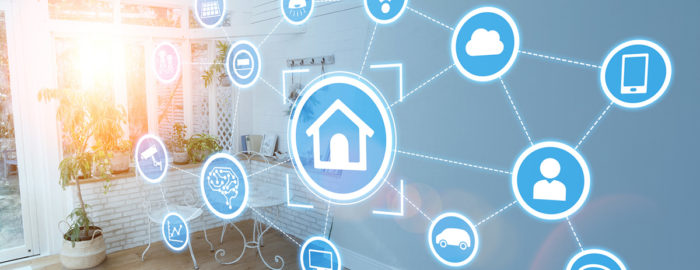The smart-home device market is rapidly growing. It may begin with a video doorbell, maybe lights and it often progresses to other devices like Alexa®. More and more homeowners are employing smart home technology in their homes. Forbes research expects it to grow from $55 billion in 2016 to $174 billion in 2025.
When selling a home, the popularity of these high-tech features will require additional steps to consider. You should decide which items will and will not stay with the home after sale and put them in the listing agreement.
It can be confusing when a home is maketed as a smart-home and a piece like the hub maybe considered personal property but ends up being very integral to the smart-home system. A seller may consider it an accessory, but a buyer may consider it a component.
In a smart-home you can have multiple technology devices connected to your Wi-Fi that allow them to be controlled by mobile apps, tablets or accessed from computers. Many of these devices can be set up with a hub like Amazon Echo or Google Home.
Some of the first devices were thermostats and lights. Adding video doorbells gave us a new level of WOW factor by allowing us to see who is at the door, talk with them and get video recordings. Social media is being used to call out porch pirates who are being caught on these video doorbell recordings.
Homeowners will often start small with an item like a smart sprinkler controller (see my last blog post). They discover how cool it is and that it actually saves time and money and they start planning the next smart-device purchase. Some of these items will absolutely become permanent and will sell with the house while others border between personal and real property.
If you are including smart devices in the sale of your home, you should have administrative access and any personal information removed and set the devices back to default settings. You should also review the privacy settings and delete the permissions for your personal mobile devices. Any manuals or warranties should be left for the new owner.
The new homeowner should verify that the smart devices they received are set back to factory settings and are no longer connected with your mobile devices. They can create their own account and register the devices in their name. This will allow them to be notified for security updates. This will force the new homeowner to create new access codes and preferences.
Want Some Insider Information on Fairfax VA homes for sale? Get a FREE Market Snapshot Report of Your Northern Virginia Home’s Value, or Search All Northern Virginia Homes For Sale. Put that data you need at the tips of your fingers!



Thierry Roche— In the article/column entitled Selling or Buying Smart Homes, you wrote “Forbes research expects it to grow from $55 Billion in 2016 to $174 Billion in 2015.” I believe that you have the years reversed; otherwise, this information does not make sense. Also, since it’s 4-5 years later (almost 2021) since the referenced years, you may want to consider seriously the merits of updating the info for your readers who may be prospective clients.
Looking forward to the Mentor Program at KW via Zoom that begins tomorrow! Speak with you then!
Best regards,
Ron Sussman
301-980-8926
Hi Ron, thanks for pointing that out to us. The date was actually off by 10 years when we went back and looked at the original data. We have made the correction. Keep on reading our posts!
You are most welcome, Thierry! Would appreciate your feedback on the email sent to you and Elliot regarding the Buyer’s Questionnaire.